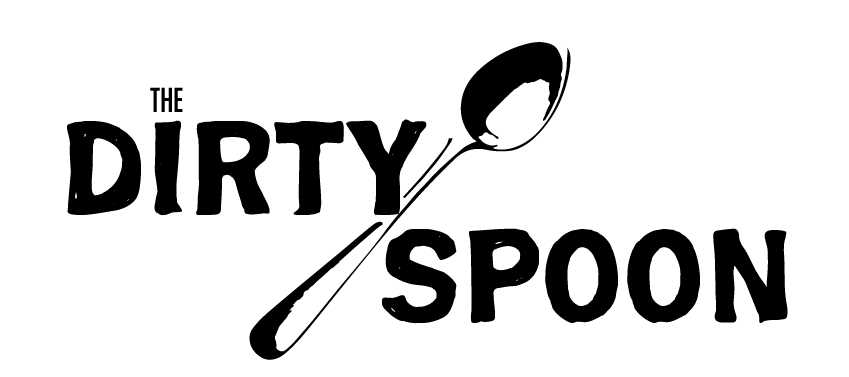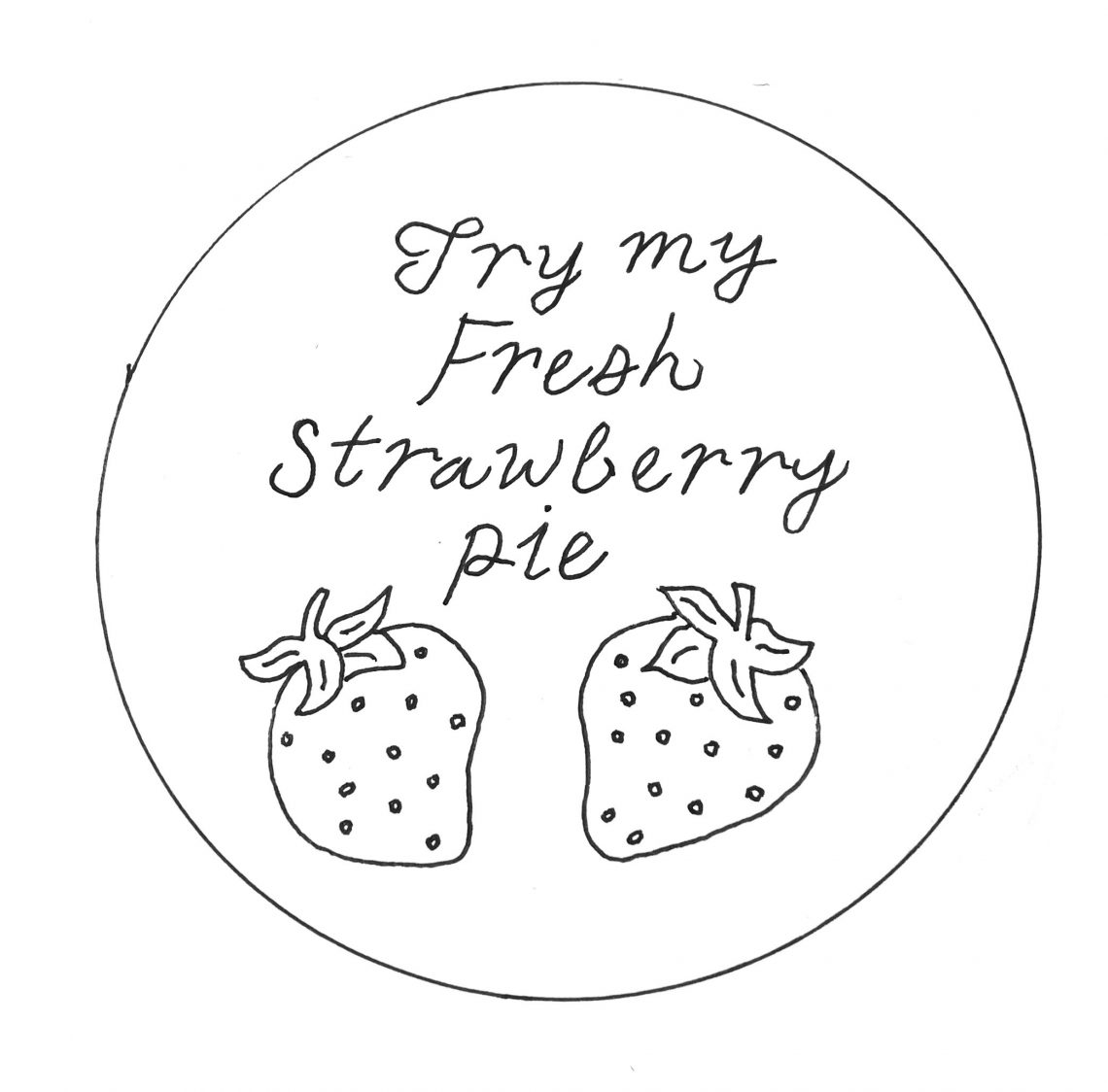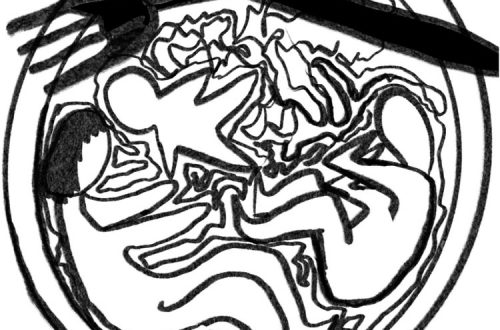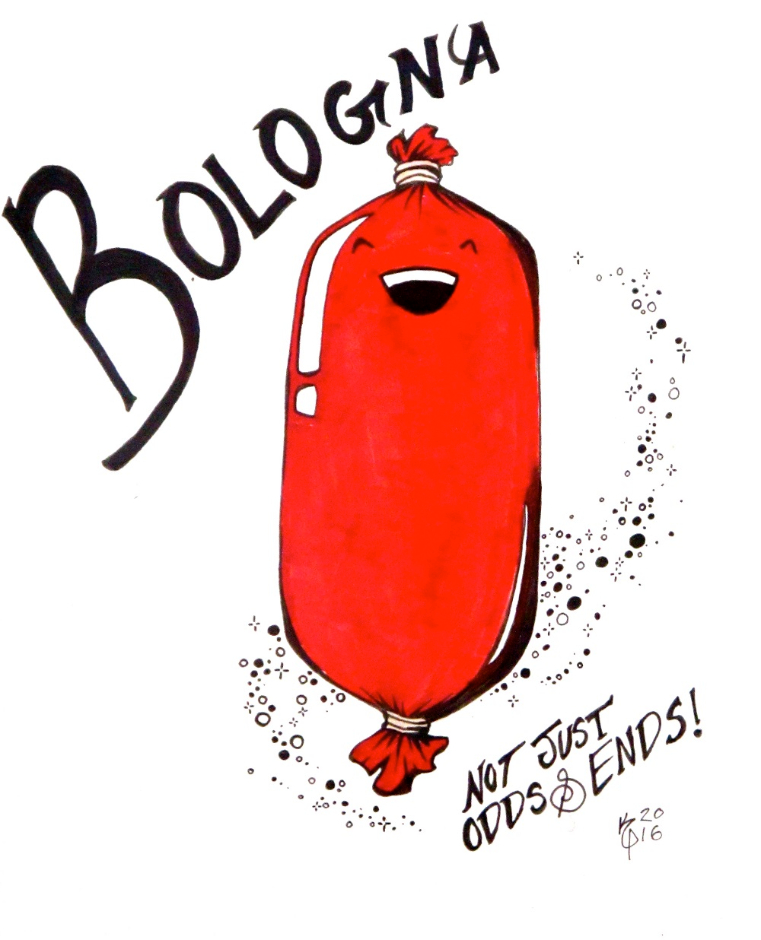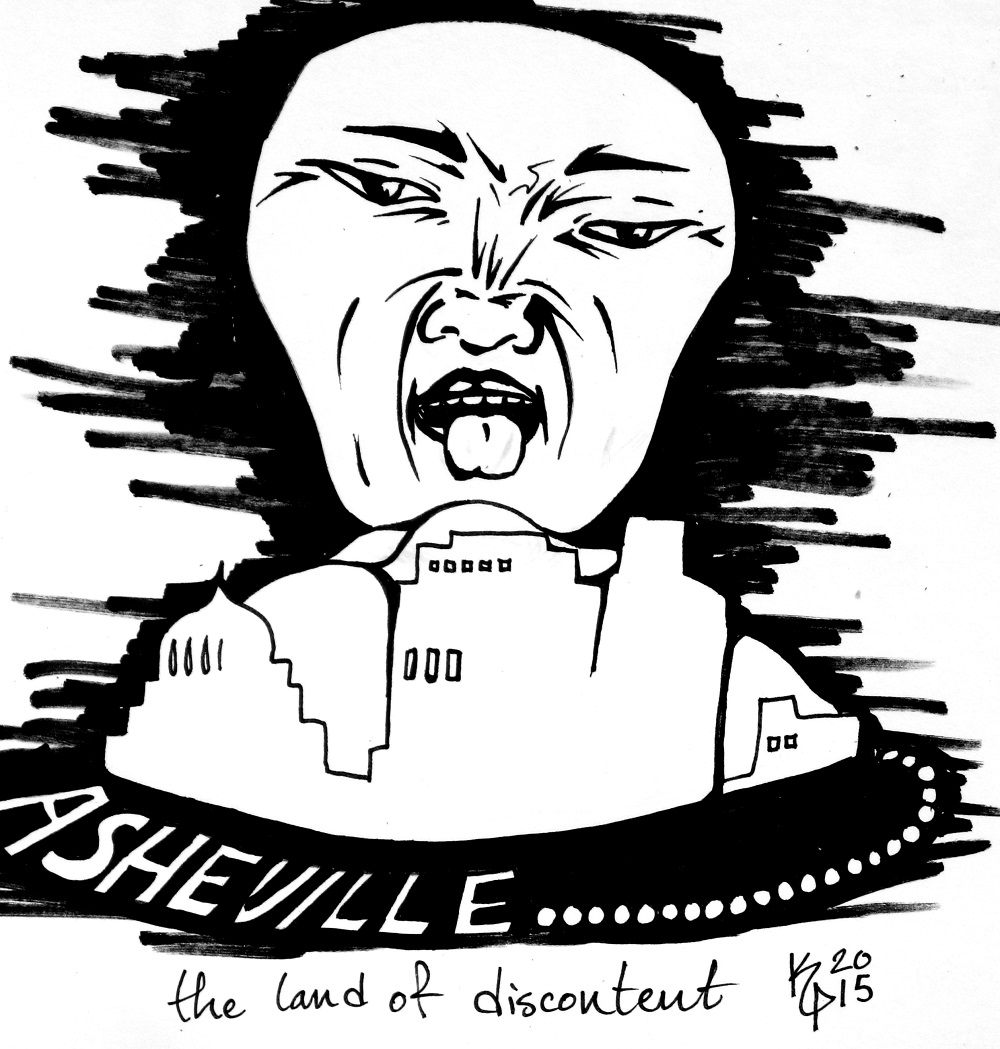by Beth Copeland
Beth’s essay appears in episode 25 of The Dirty Spoon Radio Hour.
I twist my shoulder-length hair into a bun and bobby pin my Shoney’s Big Boy cap onto the crown of my head. I hate my frumpy uniform: a white blouse, brown skirt, and orange apron with deep pockets where I stash my tips, ballpoint pen, and order forms. When I get to the restaurant, I’ll pin on the oversized button I’m required to wear that says, TRY MY FRESH STRAWBERRY PIE.
The manager at the Big Boy restaurant is stout and has a Dwight D. Eisenhower crew cut, small, pig-like eyes, and a pug nose. He never says much to me, thank goodness. He’s usually in the office in the back, doing whatever he does, or sitting at one of the tables drinking coffee and talking to Jackie, the head waitress.
Hatchet-faced Jackie is my nemesis. She’s always on my tail, waiting for me to make a mistake so she can yell at me in front of the customers. Her mousy hair is pulled back with a faux tortoise-shell barrette and covered with a hairnet like a cafeteria lunch lady’s. Her chin juts out angrily beneath her pinched lips and Dick Tracy nose. Once, her mother brought Jackie’s daughter to the restaurant for lunch. Jackie’s little girl looks just like her, poor thing, but she’s only five and still cute in a tomahawk-faced way. When Jackie smiled at her little girl, her features softened, and she looked sweet, almost pretty.
Then she saw me looking at her.
“Don’t just stand there. Refill the ketchup!” she barked.
George, the bus boy, wears a white cap like the Big Boy mascot’s and a soiled white apron. He’s as pale as Wonder Bread, short and skinny, and wears Nehi-bottle glasses that make his blue eyes look like huge, blurry pools. Like Clark Kent, George has a secret identity: Timid Bus Boy by Day, Union Rabble Rouser by Night. When he found out that I’d just completed my freshman year at St. Andrews, where a young Marxist professor from Duke had joined the faculty, he whispered his plan as he cleared water glasses, plates, and silverware from the table: “The only reason I’m here is to unionize the workers.”
Lynn is the waitress the truck drivers like. She’s in her mid-20s, with honey-blonde hair teased into a beehive. She has blue eyes like a Siamese cat’s and speaks with a soft, Southern drawl. When she walks she swivels her hips with her toes pointed out. She’s kind of snooty and doesn’t talk to me, but she’s not mean like Jackie. Lynn is divorced and lives in a trailer with two white poodles named Bella and Pierre.
Ralph, the cook, works at the grill, turning the circular metal rack where I clip orders. Ralph likes me because I always smile and say “please” and “thank you,” so he makes sure my orders get out quickly. Sometimes when it’s not busy, we talk for a minute or two while I’m wiping down the counter or refilling the salt-and-pepper shakers. Ralph, who dreams of going to art school, is from Spanish Harlem. “Talk about rough,” he said as I stood there waiting for him to add some fried onion rings to a Half-Pound O’ Ground Round platter. “Imagine growing up there as a black kid.”
I don’t know anything about Spanish Harlem except the song about a rose that I’ve heard on the radio. But I smile as if I know what he means.
I don’t know anything about Spanish Harlem except the song about a rose that I’ve heard on the radio. But I smile as if I know what he means.
Jackie shoves her tray into the small of my back. “Move it, slug ass,” she mutters.
I’m filling a tumbler of crushed ice with sweet tea for a customer. Where does she expect me to go? As I place a lemon wedge on the rim of the tumbler, I nudge my stomach into the counter a little so that she can squeeze around me and get to the soft drink dispenser on the other side.
Every day at Shoney’s Big Boy is stressful, but today is even worse than usual because several busloads of tourists unexpectedly pulled in just as the lunch rush started. Now every table in my station is full, and I’m scrambling, trying to get glasses of ice water to all the tables, take their orders, bring their beverages, and tune out the whining from impatient, customers. “Where’s our food?” the dough-faced man at Table 6 demands, his jowls quivering in indignation. “We’ve been waiting for half an hour.
I shoot him a fake Miss America smile as I balance a tray of Big Boy and Slim Jim combos over my shoulder and make a beeline for Table 8.
As all this happens, I’m also trying to fend off men making corny comments when I take their orders. “I’d like a slice of YOUR fresh strawberry pie,” one snorts, as he eyes the enormous button on my blouse while his buddies chortle. At another table, a man old enough to be my father says he’d like me for dessert.
“I’m not on the menu,” I say with a tight smile. My cheeks ache from smiling. My feet hurt. I need to pee but can’t leave the floor for a bathroom break.
“I’d like a slice of YOUR fresh strawberry pie,” one snorts, as he eyes the enormous button on my blouse while his buddies chortle.
A man wearing a Peterbilt cap at the counter orders a piece of strawberry pie. I look for the metal slicer we use to measure the pieces. Each slice of pie is supposed to be exactly the same size as the others. The slicer is not in the drawer where it’s supposed to be. It’s not on the counter. I run back to the kitchen to ask George if he knows where it is. He looks up, his glasses fogged with steam from the scalding water as he lugs a plastic tub of dirty dishes over to the dishwasher. “I haven’t seen it.”
Ralph is busy with orders, so I don’t ask him.
Why should I make the man wait while I run all over the kitchen looking for that stupid slicer? Grabbing a knife, I cut a triangular slice of pie and plop it on a plate. I shake up the whipped cream can and spritz a white mound on top of the red strawberry filling.
“What the hell are you doing?” Jackie yells as I place the pie in front of the Peterbilt guy, giving him a fresh fork and napkin.
“Serving a customer.”
“You’re not supposed to cut the pie without the slicer!” she yells. “How stupid are you?”
Peterbilt points his fork at her and says, “Hey, it’s okay,” but Jackie, who is on the warpath, ignores him.
I throw my order book on the counter. “Look, I’m sick of you yelling at me. I’m doing the best I can. I looked everywhere, but I couldn’t find it.”
“You’re supposed to use the slicer!” she yells. “Don’t you know anything?”
“You know what?” I put my hands on my hips, assuming a sugar bowl pose. “I could walk out the door right now and leave you short-staffed and scrambling. Would that make you happy?”
Jackie’s eyes widen. I’ve never talked back to her before.
“I have two more weeks before I go back to school. I’ll quit today if that’s what you want. Right now. Right this minute. I don’t care.”
Jackie’s been struck dumb, as if she’s dissolving like the witch on The Wizard of Oz. She turns on her heel and scurries away. Why hadn’t I realized this before? She holds no power over me. Being head waitress at Shoney’s Big Boy is probably the best job Jackie will ever have. She can’t quit her job. She has to keep working to provide for her little girl. I’m not like Jackie, or Lynn, or even like Ralph, the artist who will never make enough money working at Big Boy to pay for art school. I’m a college kid. My job is temporary. If I run out of money, I can go home and live with my parents for the rest of the summer. No wonder she hates me.
Being head waitress at Shoney’s Big Boy is probably the best job Jackie will ever have.
Peterbilt wipes his mouth, wads up his paper napkin, and leaves some change next to his plate. By this time tomorrow, he’ll be halfway across the country, eating pie at a truck stop counter, making small talk with another waitress. Like him, I’m just passing through. In two weeks, I’ll never see Jackie again or George or Lynn or Ralph. I’ll be back at school.
I pick up the quarter Peterbilt left on the counter. It glows like a moon in my palm. As I walk over to Table 2 to take an order, my apron pocket sags with the weight of coins that jingle a little as I carry glasses of ice water to the customers.
Illustration by Corinne Pease

About Beth Copeland
Beth Copeland is the author of three full-length poetry books: Blue Honey, recipient of the 2017 Dogfish Head Poetry Prize; Transcendental Telemarketer; and Traveling through Glass, recipient of the 1999 Bright Hill Press Poetry Book Award. Her poems have been published in literary magazines and anthologies and have been featured on international poetry websites. She has been profiled as poet of the week on the PBS NewsHour website. Beth lives in the Blue Ridge Mountains where she owns and runs Tiny Cabin, Big Ideas™, a retreat for poets, writers, and artists.
